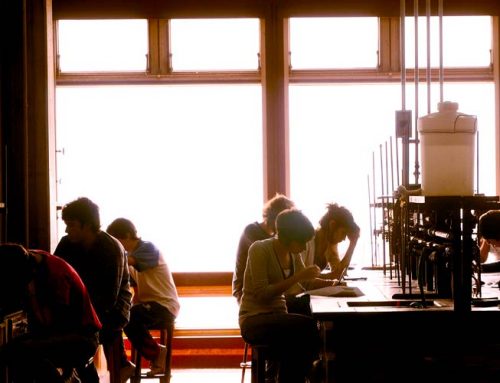Project Description
Support to teaching and investigation departments
Support to the computer science department
The Computer Science Department (Departamento de Computación, DC) of the School of Exact and Natural Sciences of the University of Buenos Aires, is world-wide recognized as a reference center for education and research in Computer Science. It has more than 50 years of experience generating highly trained professionals and research of excellence. Through FUNDACEN, the Department has a permanent channel for receiving and efficiently managing donations, under the direction of the Department authorities, dedicated to the maintenance and improvement of infrastructure and equipment, and providing additional support for academic activities.
Travel Assistance for Young Researchers
The main goal of this program is to promote all our PhD students and young researchers to attend to main academic & scientific events in their area of interest. The program also seeks to recognize the effort of PhD students or postdocs that also work as teaching assistants or professors at the Computer Science Department.
The aim is to allow them to have the chance to spot the hot topics in the area, get to know key researchers, and help them to enhance their scientific network. Additionally, we also consider supporting the attendance to the top-level schools and courses for their training.
The Department of Computer Science has around 60 PhD Students and 15 Postdocs. The program aims at funding 6 travels per year, split into two calls of 3 travels each. We estimate 3500 USD as the maximum budget for each travel. The financial assistance includes the airfare, lodging expenses, registration fee of the event, and a per diem for local transportation and meals.
Yearly cost of the program: 21.000 USD (2 rounds of 10.500 USD) .
Computer Science Teaching Support
Our mission, as one of the main high-education institutions in Argentina, is providing our students with best curricula in Computer Science. That not only requires relying on good Professors and Teaching Assistants but also on providing high-quality teaching materials and support. Due to budget cuts affecting our country, our university budget is not enough to cover our equipment needs. These are the projects that are currently in need of financial aid:
-Robots
“Computer Organization 1” is one of the first courses in the Computer Science Licenciatura curriculum. During this course, students learn how a computer works. The syllabus includes a broad array of topics including representation systems (two’s complement, signed magnitude representation, ASCII chars), input/output operations, digital logic circuits, CPU architecture, memory and microarchitecture. Computer Organization is the only mandatory course of the Licenciatura in which students study hardware.
In this course includes hands-on assignments, following the idea: “Tell me and I forget, teach me and I may remember, involve me and I learn”. Some of the topics are taught using simulators where students have to discover, fix and build different parts of a computer. But the most interesting one uses a robot: the input/output lessons, where students have to program and test routines in a robot who interacts with the environment solving different challenges. Unfortunately, there is only one robot for the whole class (borrowed from a research group in robotics). The activity could be improved if more robots were available for teaching purposes. The cost of each robot is around USD 200 (Arduino UNO, step by step motor, sensors, wheels, etc.), and building a robot could also be included as part of the syllabus if the materials were available.
– Processing and storage capacities
Modern machine learning techniques, and particularly deep neural networks, demand large processing and storage capacities. Conducting experiments with these methods ceased to be possible years ago on traditional desktop computers, and now we completely depend on the availability of GPUs or cloud computing resources for most of our research activities. These technologies are prohibitively costly given our current funding possibilities, and thus donations would be very welcome to alleviate this problem. For example, a high-performance GPU-based server could be purchased with USD 5.000-10.000, and such a system would be additionally used by several research groups, on topics including Artificial Intelligence, Speech and Natural Language Processing, Digital Image Processing, and Robotics.
-Remote collaboration
Many of the graduate and undergraduate theses involve external referees, who usually attend the presentation remotely. This practice allow us to improve the adequacy and level of the juries. In order to maintain and enhance this practice, we aim to prepare a conference room for thesis presentations, and also national and international seminars and research collaborations. Total project cost is estimated in USD 12.500 (including projector, screen, computer, and video conference equipment).
-Computer labs for students.
We try to renew one or two labs (out of seven) per year, but due to the increasingly disadvantageous exchange rate between the Argentinian peso and the US dollar, our university budget is not sufficient. The number of students in the Computer Science Department grows every year (today we have around 500 students). The upgrade of one lab that is used not only for all the courses of the computer science career but also to teach courses for other disciplines taught at our School (biology, mathematics, MS in datamining and knowledge discovery). Total project costs is estimated in USD 37.500 (25 computers * USD 1.500 per computer).



